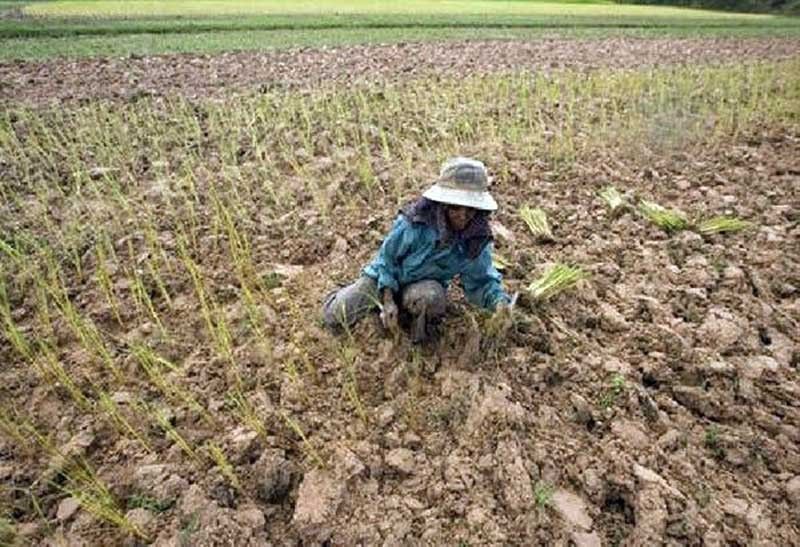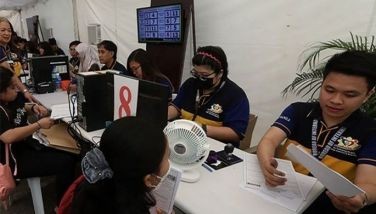Well-dressed thieves in Philippines agriculture


No economy can be impervious to the operations of cartels, loosely defined as individuals or groups that indulge in fixing prices through a variety of measures, including manipulating the market of supply and demand, all for the single purpose of earning more money from it.
In modern day history, no other economic cartel has gained as much notoriety and success as the Organization of Petroleum Exporting Countries (OPEC), founded in 1960, which has maintained a relatively tight control over more than 40 percent of the world’s oil supplies.
In a fossil fuel-hungry world, the global oil cartel has managed to rake in so much wealth that it has literally built the economic empires of those able to capitalize on abundant natural resource mined for an insignificant fraction of the money earned after selling it.
My column today, however, does not focus on oil and its cartelization, even if it still evokes pique in our everyday lives, especially when we hear news of local oil companies announcing increases or perceived inadequate reductions in their pump prices.
Rather, today, let’s look at manifestations of cartelization in the agriculture sector, which has had its fair share of news coverage in recent months given the predilection of our celebrity lawmakers and bureaucrats to single out the sector when sensitive food commodities’ prices rise by double or triple digits.
Vegetable price spike
In September last year, the price of red chili peppers – or vernacularly known as siling labuyo – spiked to a shockingly high P1,250 per kilo when it had normally been sold in wet markets at only P50 per kilo, or lower a few weeks before.
Manny Piñol, who was then agriculture secretary, went on to advise alarmed consumers to plant the spice in their backyards instead. In his Facebook video, he counseled: “Kailangan lang kaunting sipag para hindi reklamo nang reklamo. (One just needs to be a little more industrious, and to stop complaining.)”
Without doubt, this was a most inappropriate answer coming from a Cabinet-ranking official. Fortunately (or unfortunately), Piñol’s ludicrous response was drowned by a crisis days later as prices of rice more than doubled to as much as P70 a kilo from about P30 per kilo, and stocks reportedly went on short supply.
Before this rice crisis, though, a few agricultural products were manifesting similarly bizarre price fluctuations. Broccoli was selling at over twice its original retail price, and so were carrots and onions. All told, official statistics pointed to a 19.2 percent increase in vegetable prices in August 2018 compared to levels one year before.
High vegetable prices quickly reverted to normal as public attention fueled concerned government agencies to action. The effects of typhoons and flooding were part of the reasons mentioned to explain the spikes.
Little or no mention of punitive action was made against individuals who took advantage of the supply crisis, albeit temporary. Such manipulative actions are normally regarded as short-lived, and culpability is often a matter ignored.
Cartelization suspicions
This is not so, though, for the big-time stuff, like garlic. In the middle part of 2017, garlic prices shot up to P200 a kilo when the landed cost of importation was only at P17 per kilo.
Garlic being heavily import-dependent, the Department of Agriculture (DA) takes pains to ensure that import clearances for the spice are given early to avert any supply shortage. Yet, as the DA alleged, importers intended to manipulate garlic prices by delaying the arrival of imports.
The DA accused the 43 companies that were given import clearances for garlic with cartelization, an act that the government agency could only best punish by withdrawing the import permits it granted through the Bureau of Plant Industry.
While the Fair Competitive Act had already been passed in 2015, the newly created Philippine Competitive Commission (PCC) was technically still without teeth to prosecute claims of unfair trade practices since its charter prescribed a two-year transition period that was to end only on Aug. 8, 2017, conveniently months after the garlic heist escalated.
Middle phase of the value chain
These days, while still a fledgling regulatory agency, the PCC should be more capable of running after those well-dressed thieves that prey on consumers by indulging in price-fixing through collusion with other companies to control the market.
The passage of the landmark PCA in 2015, and the subsequent creation of the PCC, allow the government to effectively run after individuals or groups and companies that impede fair competition in the market, and to prescribe penalties on those that transgress the law.
The law and PCC’s mettle will be put to test in the coming months as the regulatory agency delves deeper into the middle phase of the rice value chain, or the operations of wholesalers, traders and millers in the rice industry, regarded as the most notorious cartel in Philippine agriculture.
The PCC has admitted to acting motu propio on the rice issue as clamor by lawmakers and organized stakeholders heightened in recent months with the continued high prices of rice despite the influx of cheaper, imported rice.
While rice imports account for only three percent of the country’s total household consumption, Filipinos’ dependence on the grain leaves it vulnerable to market distortions, and any increases at the consumer level are enough to raise inflation rates.
Being the last country in the ASEAN region to pass an anti-competition law, the Philippines should hopefully see the groundwork for more regulatory reforms in the agricultural sector that would encourage and promote truly meaningful fair trade practices.
Facebook and Twitter
We are actively using two social networking websites to reach out more often and even interact with and engage our readers, friends and colleagues in the various areas of interest that I tackle in my column. Please like us on www.facebook.com/ReyGamboa and follow us on www.twitter.com/ReyGamboa.
Should you wish to share any insights, write me at Link Edge, 25th Floor, 139 Corporate Center, Valero Street, Salcedo Village, 1227 Makati City. Or e-mail me at [email protected]. For a compilation of previous articles, visit www.BizlinksPhilippines.net.
- Latest
- Trending


























